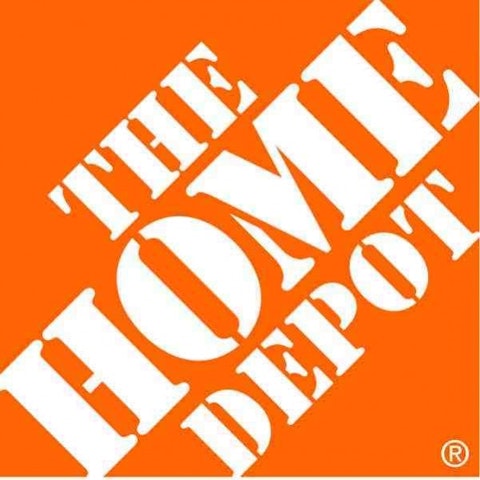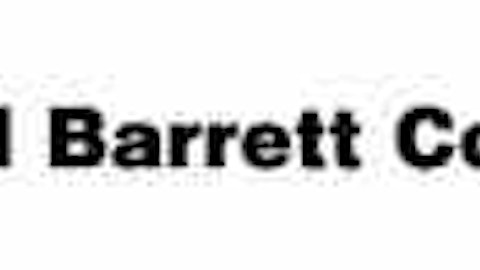Insider trading activity is one of the most underused metrics in the field of financial analysis today. Empirical studies have proven that individual investors who mimic or “monkey,” the most prominent corporate insiders can beat the market by an average of 7 percentage points a year. That’s nothing to shake your head at. Here’s our insider trading database in its entirety. Over the past few months, one company that has seen a bevy of insider activity is The Home Depot, Inc. (NYSE:HD).
Since the start of 2012, shares of the home improvement retailer have gained 44.2%, outpacing its industry’s average by close to five percentage points, and trouncing competitors like Lowe’s Companies, Inc. (NYSE:LOW) and Pier 1 Imports, Inc. (NYSE:PIR), but falling behind the duo of Lumber Liquidators Holdings Inc (NYSE:LL) and Sears Holdings Corporation (NASDAQ:SHLD). Sears has returned 73.6% year-to-date, while Lumber Liquidators has gained a whopping 190.2%.
At first glance, one may wonder: why has the home improvement industry as a whole been a world-beater this year? Let’s delve into the details.
First and foremost, U.S. retail sales improved better than most economists had hoped in Q4 2011 and Q1 2012, as consumer spending was aided by lower than expected gasoline prices. Interestingly, retailers reported declining sales in three consecutive months between April and June, though July and August numbers were much better, sporting an average increase of 0.9% over this time. By the end of the year, consensus is expecting personal consumption expenditures to be up around 2.0%, and retailers like Home Depot have benefited from this bullish forecast.
The biggest economic tailwind behind retailers’ sails, so to speak, has been the extension of the Bush-era tax cut through 2012, in addition to the 2% payroll tax cut that was signed into law by President Obama earlier this year. While these stimulus plans have provided temporary relief to an estimated 160 million Americans, it is possible that both will expire at the end of 2012.
One obvious effect that the expiration of these programs would have is on the home improvement retail industry, which is already trading at a premium to the S&P 500, at an average forward P/E in the range of 16. Looking at Home Depot specifically, the company’s stock is trading at an earnings multiple of 21.6X, above the likes of Pier 1 (11.2X), Lowe’s (20.1X), and the industry average. Of the competitors mentioned, only Lumber Liquidators (40.6X) is more expensive.
Interestingly, early estimates place Home Depot at a disadvantage on the earnings front, as five-year consensus expects annual growth of 13.9%. This is below Pier 1 (18.4%), Lowe’s (14.7%), Lumber Liquidators (17.1%), and Sears (21.2%). As can be expected, then, a PEG ratio of 1.5 indicates that there’s no value play here, and Pier 1 (0.6) looks like a better bargain-bin find at the moment. This apparent overvaluation may explain the rash of insider selling we’ve seen over the past few months.
Since August 17th, five different Home Depot insiders have sold shares of their company, including: CIO Matt Carey, Chairman & CEO Francis Blake, CFO Carol Tome, EVP of U.S. Stores Marvin Ellison, and EVP of Human Resources Timothy Crow. In total, these transactions amounted to 411,640 shares worth more than $23 million. Ellison completed the largest trade, cashing out on stock options worth close to $12 million. Francis Blake, the company’s CEO, sold 35,000 shares at $57.02 a pop, though the most notable sale has to go to Matt Carey. Home Depot’s CIO sold nearly 50% of his stake in the company on September 19th, good for a total value of $3.5 million.
Now, it should be mentioned that two Directors – Armando Codina and Ronald Sargent – bought in a week and a half ago, though these transactions pale in comparison to the bears, as does their positioning within Home Depot’s managerial structure. Altogether, Codina and Sargent purchased 22,317 shares worth $1.1 million.
As mentioned above, Home Depot is operating in an extremely uncertain macroeconomic environment, and is projected to experience slower earnings growth than all of its primary competitors. From a valuation standpoint, it looks as if investors are fairly valuing the home improvement retailer’s growth prospects. Perhaps the biggest reason to stay away from this company, though, is the round of bearish bets made by some of its most prominent insiders. From Home Depot’s CEO to its CIO, it appears that execs are cashing in at its current share price in the $60 range. In this stock’s case, it may be best let other investors chase the allure of its gaudy year-to-date returns. For a complete look at Home Depot’s profile, continue reading at Insider Monkey.






